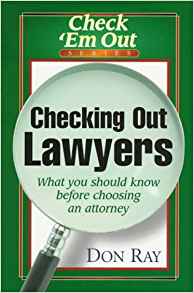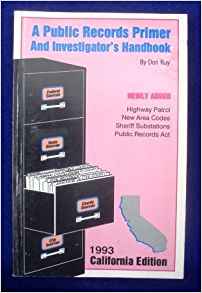Attend “Black on Black” Screening
Looking Back at Black on Black
Nearly 50 years later
What:
Special screening of the 1968 CBS documentary, Black on Black.
Who:
Black on Black’s Producer, Joe Saltzman, who will introduce the film and talk about how and why he made the ground-breaking documentary.
When:
Wednesday, September 20, 2017 at 7 p.m.
Where:
Sony Pictures Studios
10202 West Washington Blvd.
Culver City, CA 90232
Admission:
$20 tax deductible donation per person.
Includes free parking.
How to make a donation and reserve seats:
Click on the Donate button below and donate $20 for each seat you’d like to reserve. Only one combined donation is required. Please provide the names of the persons who will attend and contact information (phone and email). The Endangered History Project will send you a confirmation email, maps and parking instructions.
The Endangered History Project welcomes additional donations of any size.
Questions:
Please contact Don Ray at (760) 900-1735 or at donray@donray.com.
Great books to those who support The Endangered History Project.
Support The Endangered History Project and receive one or more of Don Ray’s books:
“Diggin’ Up Gold on the Old Paper Trail: A Workbook for Investigatin’ Folks”
We have ten newly printed copies. Make an online, tax deductible donation of $30 and we’ll ship you one.
Thousands of police investigators, journalists, genealogists and private investigators have used the fun, practical guide to understanding public records.
It features more than 70 documents relating to O.J. Simpson’s life, family, real estate and troubles. It also features a collection of death certificates of famous people as well as an in-depth look at Richard Nixon’s birth certificate. This stuff is fun.
Click below to contribute $30 and the book is yours.
“Checking Out Lawyers” by Don Ray.
This is the best book Don Ray has written on how public records work. It’s out of print, but we have some used copies.
It’s a fun book to read. Why not chuckle a bit while you learn about the public record resources available to help you investigate ANYONE — not just lawyers.
Contribute $25 and we’ll send you a copy.
Special — Contribute $50 and get both of the above books. But remember, there are limited copies available.
“The Investigators Handbook — California Edition” by Don Ray.
This was published in 1995, but the lessons in it are still sought after today. for $20, we’ll email you an e-book version. You can used Kindle or other readers — and take it with you anywhere.
The back part of the book includes listings of hundreds of Federal, State, County and City listing — of course, many of the phone numbers and addresses have changed. No problem. That’s what today’s Internet is for.
The front of the book is filled with worthwhile tips, strategies and tools you can use today. It also describes the most common resources for obtaining public records.
Again, donate $20 online for Don Ray’s “Investigators Handbook.”
The Endangered History Project, Inc., is a 501(c)(3) non-profit organization that is actively locating, obtaining, restoring, digitizing and archiving any and all forms of media — including books, manuscripts, films, video, audio, photographs, artwork, maps and even human memories by conducting oral history videos.
Continue to the web page below where you can donate directly and, at the same time, add a note that tells us which book or books you want. Please be sure to provide your shipping address and phone number.
If you have any questions, please call Don Ray at (760) 900-1735 or send to donray@donray.com.
Nothing fancy here — just hoping you’ll help us pick up some speed so we can do good stuff.
There’s a problem that touches every human being on earth — including you.
When we leave this world, our memories vanish. Our children, grandchildren and great-grandchildren — as well as their yet-unborn grandchildren — lose the opportunity to learn from us.
The solution is to consciously preserve the documents, images and sounds that we generate while we are living — and to preserve the media that our parents and grandparents left for us before they died. The solution is either to drop everything you’re doing and start preserving your family’s media right now, or to support an organization such as The Endangered History Project so that it can focus on this task.
It’s fortunate that The Endangered History Project was able to capture the lifelong memories of singer/songwriter Alan O’Day before his succumbed to cancer in May, 2013. He went out of his way to encourage others to “pay it forward.”
Imagine how wonderful it would be if you could see and hear your grandparents’ grandparents talking about life in the 1800s. Now imagine your descendents in the year 2213 being able to see and hear you speak — imagine how your wisdom today might enhance their lives.
The Endangered History Project, Inc., is a tax-exempt, not-for-profit, educational, historical and literary organization that exists for the purpose of preserving any and all forms of media so that future generations can learn from the people of the past generations.
That’s a big umbrella. The good thing about a big umbrella is that it enables us to preserve every conceivable type of media including:
Photographs, films, journals, personal letters, diaries, videos, unpublished manuscripts, artwork, audio recordings, maps, sidewalk inscriptions, murals and even the transcripts and recordings of the things people remember, i.e. oral history interviews.
Who’s doing the work? Right now, Don Ray and a few other volunteers are working to digitize, transcribe, duplicate, restore and preserve these important media. At the same time, they’re also conducting video oral histories of as many people as they can — all in the effort of preserving the memories and recollections of people who may not have generated or created the kinds of physical media that would remain after their memories fade away.
This is an unsustainable model, however. The math is simple. Don Ray and a few volunteers cannot create more hours in the day or days in the week to increase our productivity. We’re all working in a library that’s burning down faster than we can save its collections.
We need to train more volunteers and raise enough money to hire people to help make all of this happen. We need better equipment to keep up with all of the data and video and photographs that we are processing and preserving.
The good news is that The Endangered History Project, Inc., has received from the Internal Revenue Service it’s 501(c)(3) tax exempt status and can now receive donations and grants that the donors can deduct from their income taxes. It means that you can support us, and possibly lower your tax obligation at the same time.
But you can also support the organization because it feels good. Your support enables us to expand the work we’re doing. It enables us to train hundreds more people to be able to join in preserving more letters, films, videos, photographs, diaries, journals and other media that document life in the 20th and 21st centuries. Your support enables us to record video oral history interviews with more people — before the library burns down.
Even one dollar would help. Your great-grandchildren’s great-grandchildren will learn from today’s wisdom.
And I’m sure they will thank you.

Recent Comments